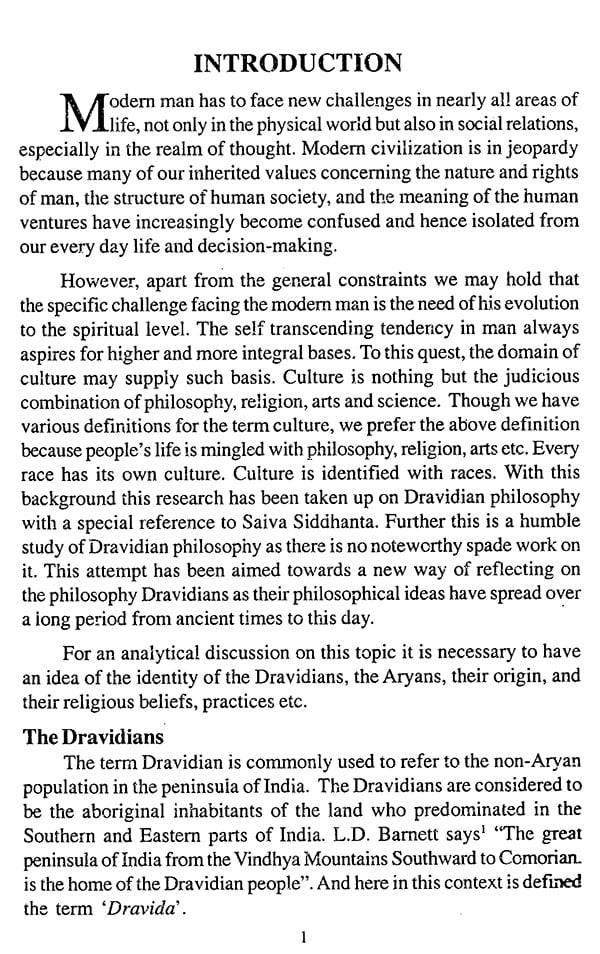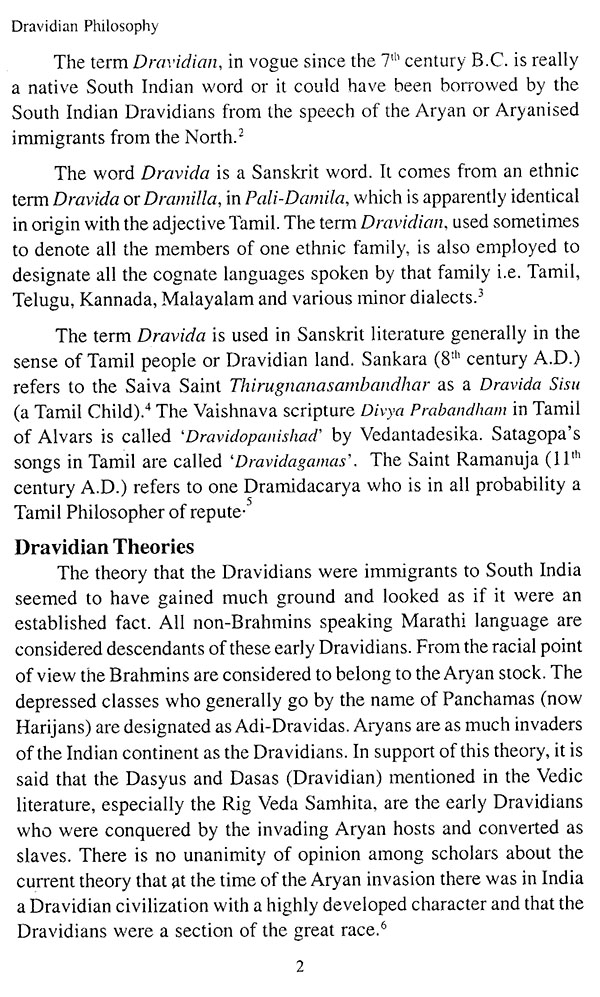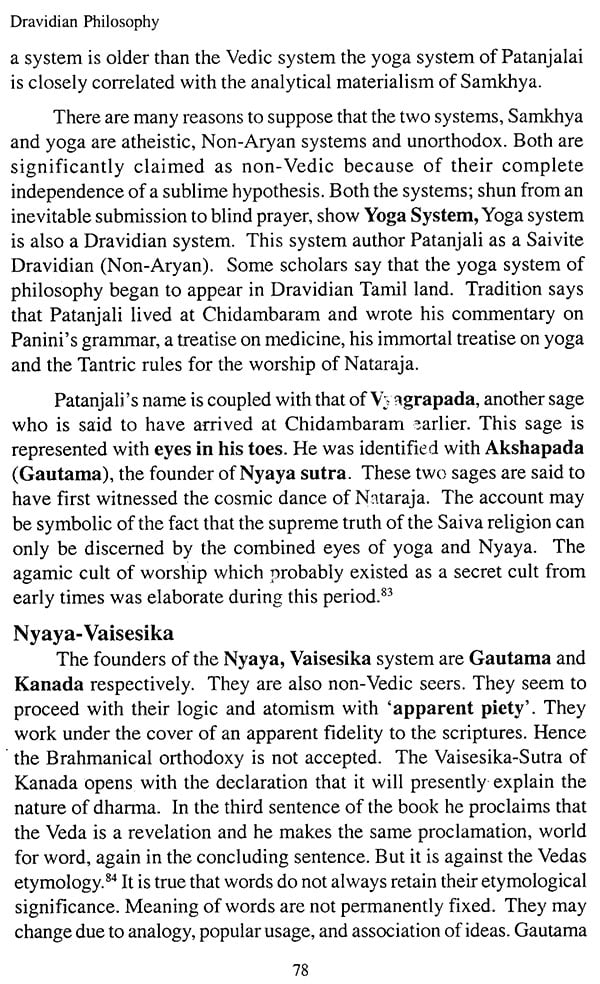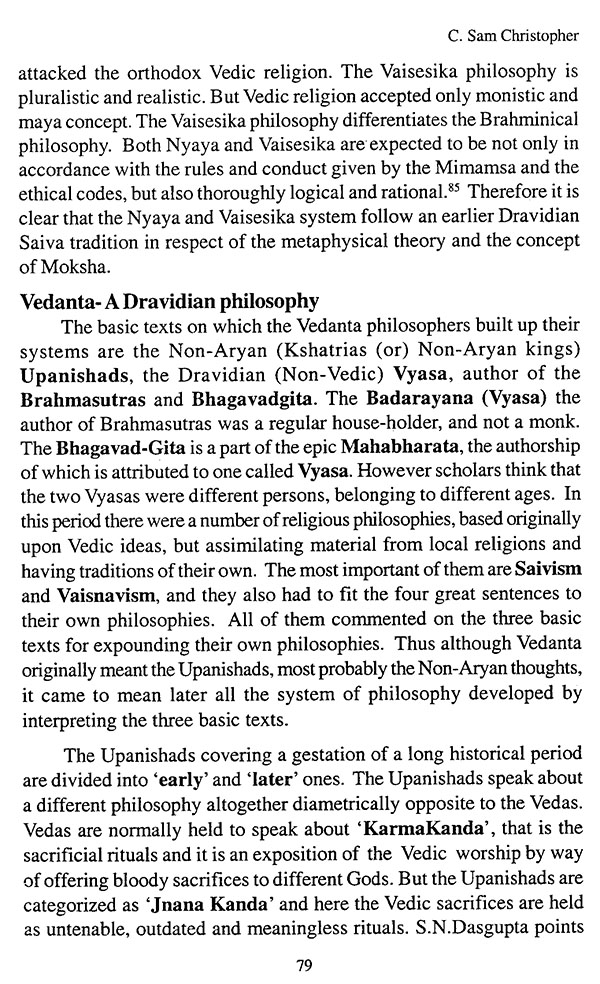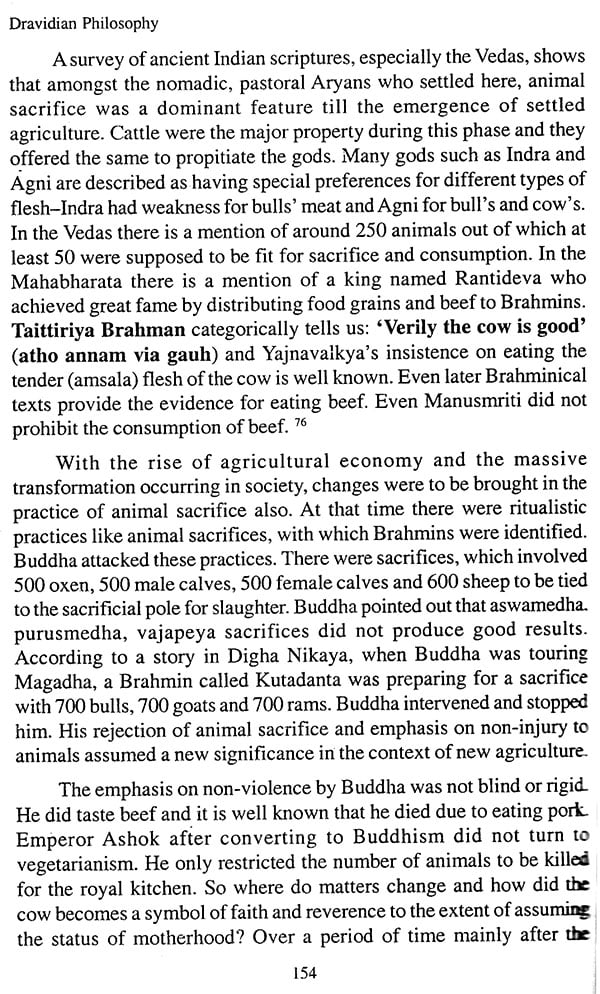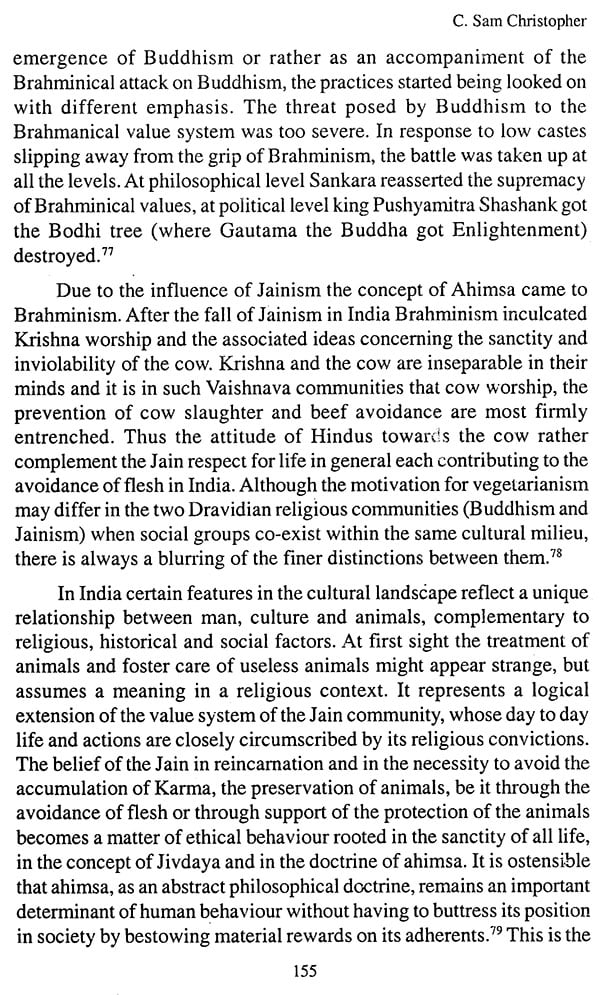
Dravidian Philosophy- with Special Refrence to Saiva Siddhanta
Book Specification
| Item Code: | NAX120 |
| Author: | C. Sam Christopher |
| Publisher: | Dravidian University Campus |
| Language: | English |
| Edition: | 2009 |
| Pages: | 176 |
| Cover: | PAPERBACK |
| Other Details | 9.00 X 6.00 inch |
| Weight | 210 gm |
Book Description
The author, Dr. C. Sam Christopher is an Assistant Professor of Philosophy in the Department of Comparative Dravidian Literature and Philosophy, Dravidian University. His research interests include Indian Philosophy, Saiva Siddhanta and Dravidian Philosophy.
The Indian Philosophy started with the philosophy of Dravidianism. The Indian Philosophical Consepts of Yogi Siva, Temple worship, Transmigration, Love, Karma, Trinity, Redemption, Avatara, Reincarnation, Rebirth are all Dravidian concepts. Saiva Siddhanta is the indigenous Philosophical thinking of the Tamils who have developed it as attempted to investigate the facts of Dravidian Philosophy with special reference to Saiva Siddhanta. This book will serve as a major addition to the field of Dravidian Philosophy.
Dravidian culture is one of the most ancient cultures of the world. Those cultures, slightly contemporaneous to one another, are slowly started fading out. However, the primordial Dravidian culture continues to thrive without losing its quintessence despite the apparent changes in systems of dress and address.
" Dravidian University was established in 1997 to mirror the real and rich picture of Dravidian culture not only in its linguistic, literary, cultural and philosophical facets but in science and technological aspects also.
During a period of time when no special attention worth its name was paid by the Centre with regard to the language, the Southern states except Kerala, had established all by themselves their own Universities Telugu, Tamil and Kannada - to conduct research on their respective languages and cultures.
The Government of Andhra Pradesh took a step ahead and established Dravidian University with the co-operation of the sister states to research and reflect on the inherent oneness of the cultures of the four states whose languages number up to 27. Its endeavour is to promote unity and amity in the family of several languages. The main objectives of Dravidian University are to augment the common weal and social well being of the communities of marginal languages and to build bridges among the Southern states. While working on each language separately in varied areas, it aims at a synthesis and a discovery of the common heritage through Comparative Studies.
Prasadranga (Publications Wing) and Anusrjana (Translation Bureau) are the most significant wings of the University out of its several on going progressive activities.
We find the Pre-Vedic fundamental ideas in terms of which the philosophical thoughts are developed presuppose each other, and are in isolation or abstraction from the indigenous. It is exercised self consciously to exhibit this truth as may be seen from its treatment of the concepts of the living thoughts.
The Indian philosophy started with the philosophy of ‘Dravidianism’. The philosophical elements of Indian religion can be traced back to the pre-Aryan in Mohanjodaro civilisation. S.N. Dasgupta says, "Non-Brahminic thought as well must have either set the Upanishad doctrines afoot or have rendered fruitful assistance to their formation and cultivation, though they achieved their culmination in the hands of Brahmins."
The Indian philosophical concepts are amalgamation of both Dravidian and Aryan. The concepts of Yogi Siva, Temple worship, Transmigration, Love, Karma, Trinity, Redemption, Avatara, Reincarnation, Rebirth are the Dravidian concepts.
The contribution of Dravidians to the philosophical thinking of India are vast as we could find their contribution or traces in the Indian philosophical system and even in Upanishadic thinking.
Most of the scholars consider the Indian philosophical schools of Samkhya, Yoga, Nyaya Vaisesika, Vedanta, Buddhism, and Jainism are part of Dravidian Philosophy, the idea of Maya and Brahma is the philosophic development of the Dravidian Shaktas’ idea of Shakti and Siva. The Shaktism is the contribution of the Indus religion in which Shakti is Supreme. She is the Creator, Protector and Destroyer of the Universe. She does all these but she cannot do them without the presence of Siva. This doctrine is the basis of Saiva Siddhanta philosophy.
The great thinkers of the Upanishads do not come from the Brahmanical hierarchy (Aryan). The Upanishadic thinkers do not regard the Yajna as superior to Moksha.
Saiva Siddhanta is the indigenous philosophical thinking of the Tamils who have developed it as a system of philosophy.
Any system of philosophy should have the components like epistemology, metaphysics, ethics and religion. In this manner we have three Nastika or Hetrodox and six Astika or orthodox system. These six orthodox systems alone are labelled as Indian philosophy. Though this process of calling have omitted blindly a very great system of philosophy of the Dravidians, i.e., Saiva Siddhanta and also it is very unfortunate that Saiva Siddhanta escapes even bare mention in many of the standard books on Indian philosophy.
At this juncture, it is worth mentioning—Dr.C.Sam Christopher, the author of this book on philosophy, entitled, ‘Dravidian Philosophy’ has contributed greatly by exposing the excellence of ‘Dravidian Philosophy’ through his extensive research study on Dravidianism.
With its logical presentation of the philosophical concepts we may claim Saiva Siddhanta as the seventh system of Indian philosophy.
The soul of India is Dravidian, unfortunately, the world has been made to believe that Indian civliisation is Aryan Civilisation. Norms and values such as ‘tolerance’, non. violence, Bhakti, temple culture, moral culture, sex, trade, handicrafts, temple architecture and all acts’ of refined life have their roots in the Dravidian India. To strengthen this research on sociology, religion, philosophy and other aspects of Dravidianism has to be undertaken by future researches and studies.

